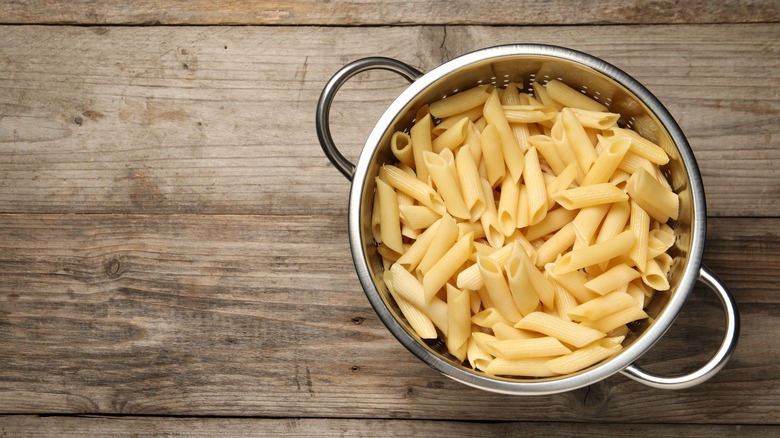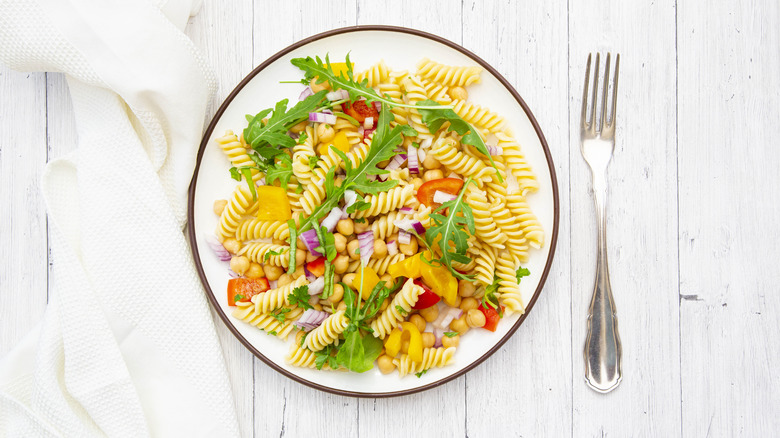Here's When It's Perfectly Okay To Rinse Noodles After Cooking Them
Rinsing noodles after cooking is often considered taboo, but sometimes it's not just okay — it's absolutely necessary. For cold dishes like pasta salad and stir-fries, rinsing helps prevent your noodles from turning into a sticky, clumped together mess. After all, one of the biggest mistakes people make with pasta salad is skipping this rinse, which all too easily leads to a bowl full of gummy noodles that nobody wants to dig into. Cold pasta salads deserve perfectly loose, mixable noodles that don't turn into one giant carb ball.
Rinsing also comes to the rescue when you're stir-frying. Surely nobody wants gummy, stuck-together noodles when the goal is to toss them around in a hot pan with veggies or sauce. A quick rinse removes excess starch and helps to keep the noodles separate and ready to mix with the other ingredients. And if you're planning to store your pasta for later without the dreaded clumping, cooling it and even sometimes rinsing it properly is key. The takeaway? If you're prepping for a cold dish or stir-fry, rinse away. But when you're serving a hot, saucy meal, the rules change and you'll likely want to avoid rinsing your noodles.
Skip the rinse for saucy success
Rinsing pasta might seem harmless, but if you're planning to serve it with a hot sauce, think again. When pasta is cooked, it's coated in a layer of starch that helps sauces cling lovingly to each noodle. Wash that away, and you're left with sad, slippery noodles that let the sauce slide right off. That starchy coating is the secret to a velvety connection between pasta and sauce — here, rinsing pasta noodles is a crucial mistake that can make your dish go from satisfying to lackluster faster than you can say "al dente."
For truly perfect pasta, it's important that the noodles and sauce spend some time together before reaching the plate. Instead of just pouring sauce over the top, let the pasta finish cooking in the sauce for the final minute or two. This extra step allows the flavors to blend, making the dish more cohesive and rich than if the noodles and sauce are only introduced at the last moment. By skipping the rinse and using this technique, you'll end up with a dish where every bite is coated with sauce and full of flavor.
The bottom line? If your pasta's getting sauced up, let that starch do its thing. But if it's bound for a cold dish or you don't want it to stick together for another reason (like while assembling lasagna), rinse away and keep things cool — sometimes literally and figuratively.

